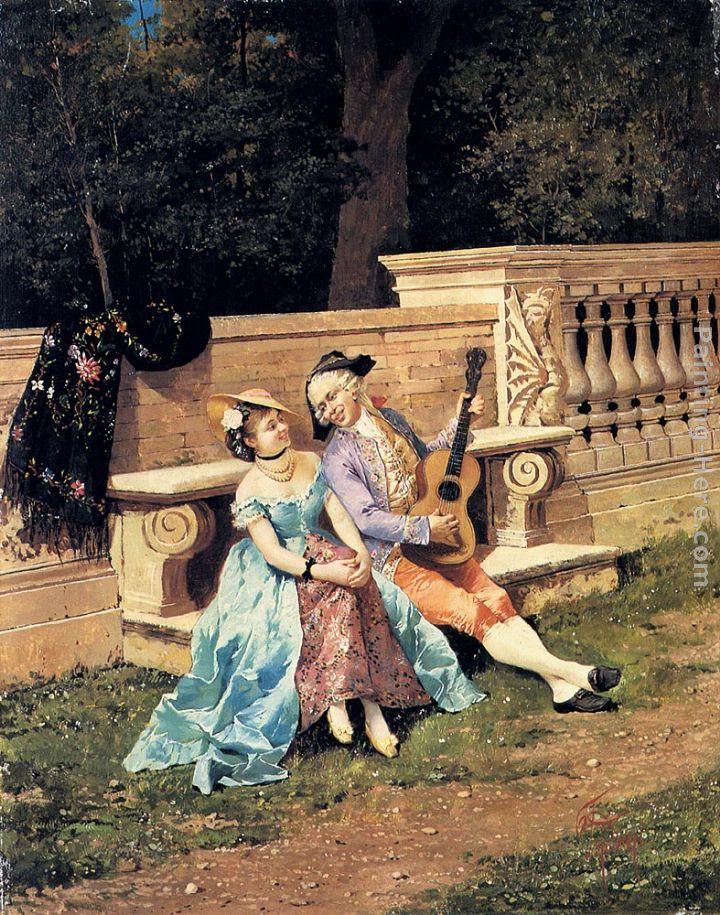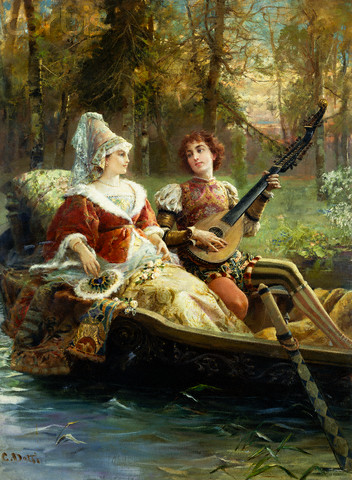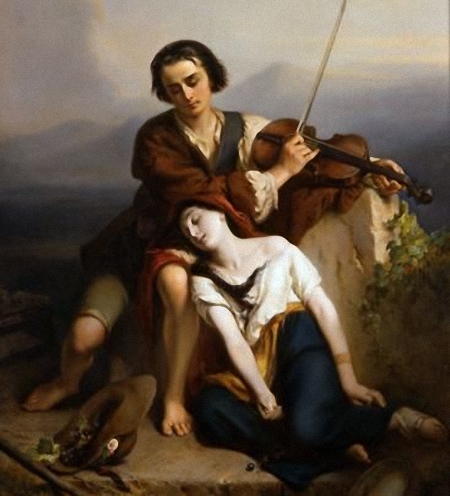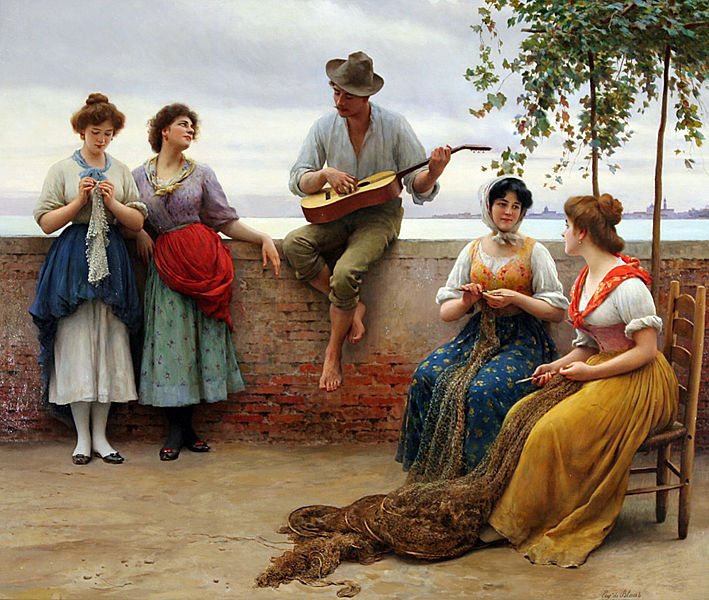"Any great work of art... revives and re-adapts time and space,
and the measure of its success is the extent to which it makes
you an inhabitant of that world - the extent to which it invites
you in and lets you breathe its strange, special air."
AUTHOR: Leonard Bernstein

MEANING OF THE QUOTE:
"A great piece of music can transport your imagination
back in time, ahead in the future, make you laugh or
cry, and send you to exotic places."
 |
| Léon-François Comerre: The Serenade |

STRING QUARTET in F MAJOR
OP. 3 NO. 5 HOB. III:17 (1776)
SERENADE |
| http://www.flutetunes.com/tunes.php?id=75 |

(II. Andante Cantabile)
[Serenade Attributed to Romanu Hoffstetter (1742-1815)
erroneously attributed to Franz Joseph Haydn by Ignaz Pleyel]
Budapest Stringserroneously attributed to Franz Joseph Haydn by Ignaz Pleyel]

 |
| Filippo Indoni: The Serenade |
 |
| Cesare Detti : Romantic Serenade |

STRING QUARTET in F MAJOR
OP. 3 NO. 5 HOB. III:17 (1776)
Complete
[Serenade Attributed to Romanu Hoffstetter (1742-1815) erroneously
attributed to Franz Joseph Haydn by Ignaz Pleyel]
Kodàly Quartet
Complete
[Serenade Attributed to Romanu Hoffstetter (1742-1815) erroneously
attributed to Franz Joseph Haydn by Ignaz Pleyel]
Kodàly Quartet
A serenade (from French sérénade,
from Italian serenata, from sereno
peaceful, from Latin serēnus calm;
also influenced in meaning by
Italian sera evening, from Latin
sērus late) is a light and/or intimate
piece of music of no specific form
such as might be played in a quiet
and pleasant open-air, evening
setting as a sort-of musical greeting.
In its original form it was meant to
be performed, typically by one
person, for a lover, friend, person
of rank, or other person to be
honored. The classic example of a
serenade is a man singing below a
woman's window at night
accompanying himself on a
portable instrument, most likely
a guitar, lute, or other plucked
instrument; a custom which began
in the Medieval era. During the
Classical musical period (the time
of Haydn) the serenade's function
was increasingly taken over by the
instrumental serenade which often
was still performed in the evenings
or on social occasions.
 |
| Judith Leyster: Serenade |
 |
| Unknown Artist: Serenade, c. 1870 |




